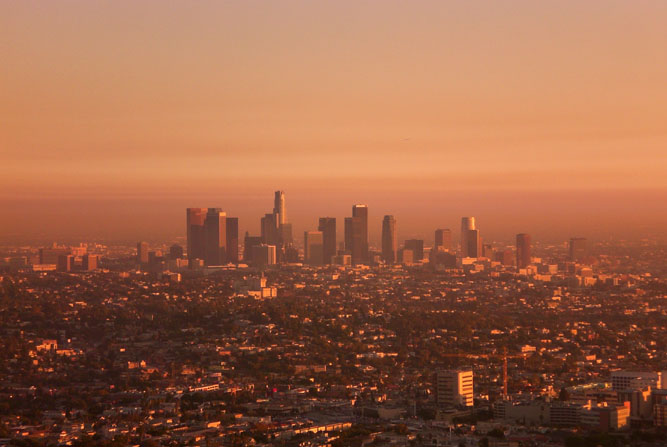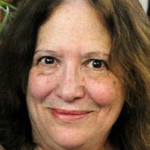Coming Home
My exile is longer than Odysseus'.
I was born in the time of witch hunts in Los Angeles,
my ex-Communist aunt one of the witches hunted,
I’ve been singing the blacklist baby blues for too long,
exiled myself to a faraway island on the margins of this city.
Now my Red Aunt Sara has been dead for decades,
the FBI who tracked her are dead;
still I haven’t come home.
I’m not like Odysseus mooning away seven years on the island with the witch Calypso;
instead I’ve been like one of the Japanese soldiers
hiding out on a tiny Pacific island
long after Japan and the United States signed a peace treaty,
thinking the war is still on,
anti-Communist warriors still hunt us across the city.
Like Odysseus I want to come home.
I declare all the wars have ended.
I’m sailing my boat home to Los Angeles,
coming home to immigrants like my grandparents
climbing their way out of sweatshops
by owning a mom-and-pop grocery store,
coming home to all the mom-and-pop grocery stores
in Los Angeles owned by Indians, Koreans, Latinos, Jews, Africans,
coming home to men like my uncle riveting in the assembly lines
at Douglas Aircraft and Lockheed in Burbank,
to my uncle teaching math in a Valley suburban junior high school,
dancing Russian folk dances in West L.A.,
coming home to all the folk dancers with their fancy footwork
shaking up the city so Los Angeles rocks.
I’m coming home to the flat Los Angeles plains,
to my parents the Air Force vet and his wife the nursing student
looking at their new pink stucco duplex in Fairfax
and all the vets and all their wives after all the wars
wanting out of the tenements and ghettos,
moving their furniture into their new home on these flat plains.
We were not quite middle class,
we had faith in the future,
to have faith in the future again.
I’m coming home to the coyote walking nonchalantly in front of
the houses perched precariously on the Hollywood Hills,
to the owls, rattlesnakes, tarantulas, and skunks in the Santa Monica Mountains,
to the deer that bounded in front of me in Runyon Canyon,
to the big Tujunga Wash flowing out of the San Gabriel Mountains,
to the Los Angeles River in a rainstorm a ranging torrent by Griffith Park,
to walking beside the ducks on the riverside in Griffith Park,
to looking at the red-tailed hawks in the Ballona wetlands,
to miles of white sand beaches,
to walking Venice boardwalk with all the freaks, homeless, and street musicians,
to the blues wafting out over the Pacific,
to plant trees to make this a good green city.
I’m coming home to reminisce with old friends at the metal tables
at Farmer’s Market with the screenwriters and old men like my father,
to the fisherman bringing in their boatloads of tuna at San Pedro,
coming home to all the farmers’ markets strewn across the city
where farmers, fisherman, and housewives haggle,
to walk by tables piled high with pumpkins,
freshly baked loaves of bread and fresh green basil,
coming home to the city of a thousand garage sales on weekends,
to women searching for bargains at the flea markets
blossoming like wild yellow mustard flowers across the flat plains
to make the city a place where all can feast.

Art Information
- "Los Angeles at Sundown" © Marcy Reiford; Creative Commons license.
 Julia Stein’s fifth book of poetry What Were They Like? was published in March 2013. In the last three years, she's edited two books: Every Day Is an Act of Resistance: Selected Poems of Carol Tarlen by the San Francisco poet Carol Tarlen, who died in 2004, and Walking Through a River of Fire: 100 Years of Triangle Fire Poetry. She is the 2011 Joe Hill Poetry Award winner. She's also been a journalist and literary critic and has just finished a novel about the 1960s as well as her sixth book of poetry.
Julia Stein’s fifth book of poetry What Were They Like? was published in March 2013. In the last three years, she's edited two books: Every Day Is an Act of Resistance: Selected Poems of Carol Tarlen by the San Francisco poet Carol Tarlen, who died in 2004, and Walking Through a River of Fire: 100 Years of Triangle Fire Poetry. She is the 2011 Joe Hill Poetry Award winner. She's also been a journalist and literary critic and has just finished a novel about the 1960s as well as her sixth book of poetry.
